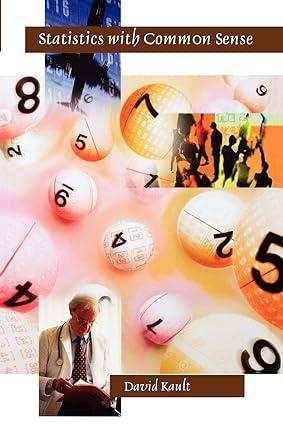On two occasions, 1,200 people each run races against a stopwatch. On one of the occasions each
Question:
On two occasions, 1,200 people each run races against a stopwatch. On one of the occasions each person does some mental arithmetic exercises just prior to the race but does not do so on the other occasion. Say 700 people ran better after mental arithmetic. Assuming mental arithmetic is entirely irrelevant to physical performance, use a computer to calculate how often you would expect to get results at least this far out from the value of 600 out of 1,200 (the value most likely if mental arithmetic exercises are entirely irrelevant to physical performance). If you obtained this result, would you be reasonably convinced that prior mental arithmetic assists racing performance? POLI967
Fantastic news! We've Found the answer you've been seeking!
Step by Step Answer:
Related Book For 

Question Posted:





